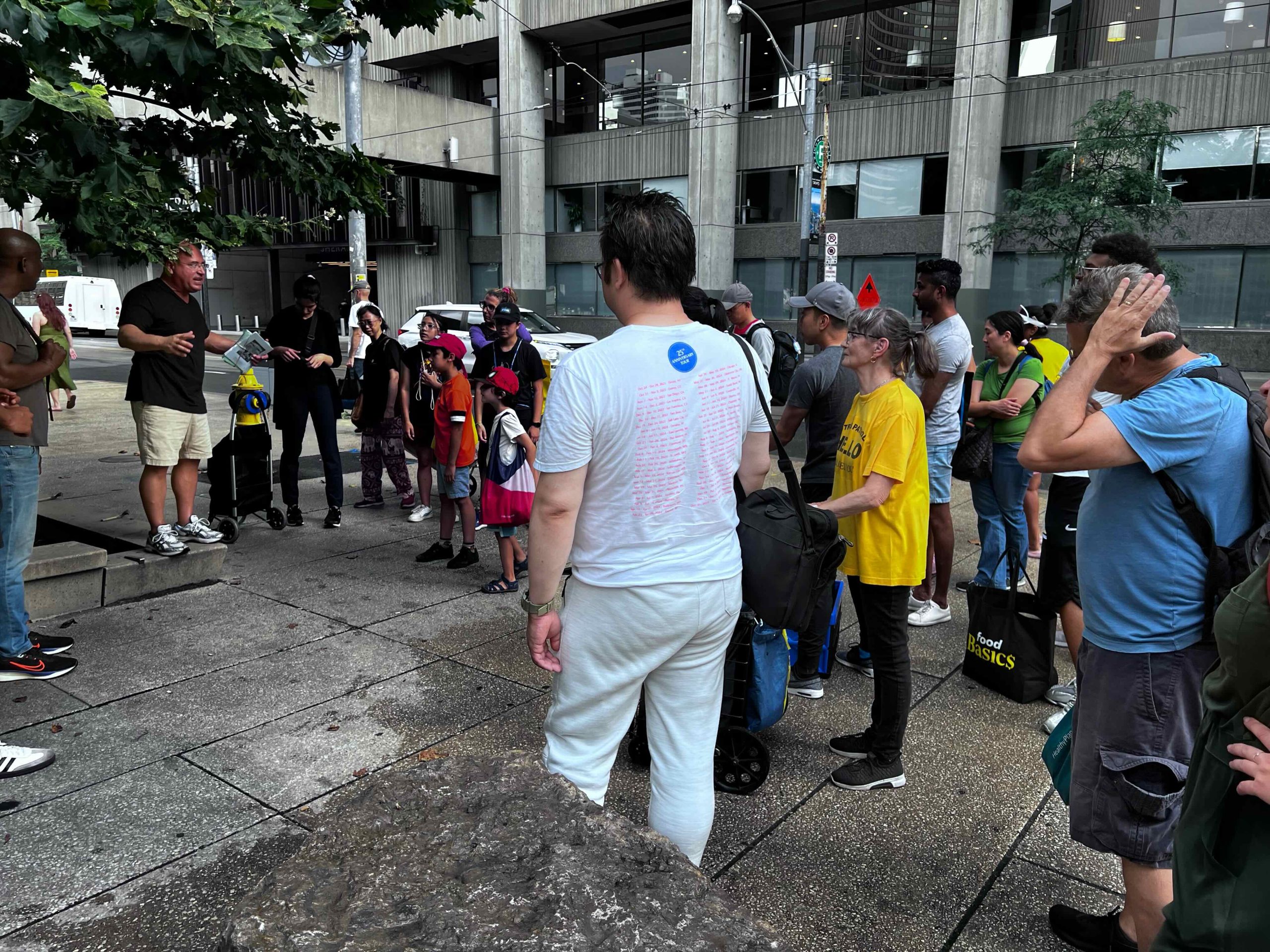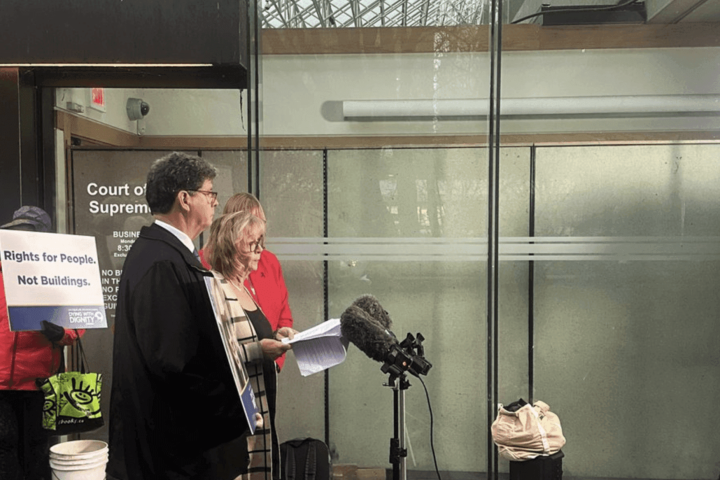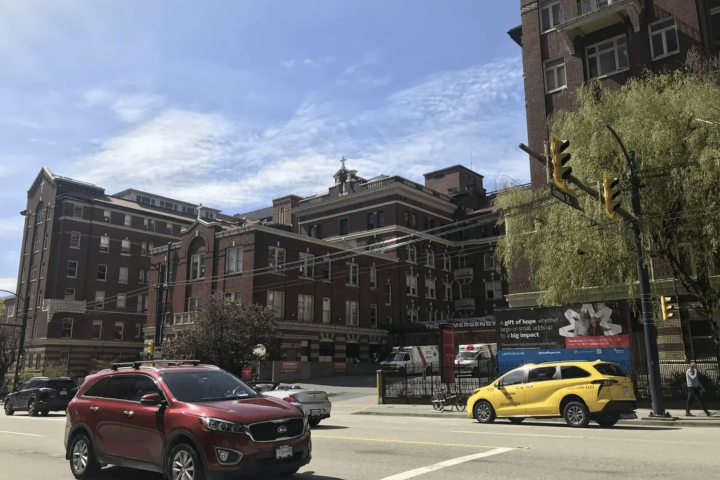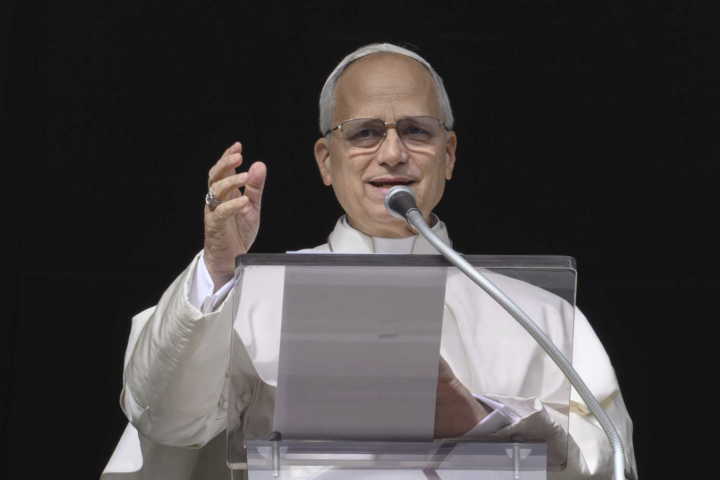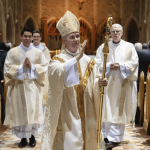TORONTO (CCN) — The streets of Toronto tell two different stories.
One story lives in statistics: More than 15,000 people lack a home, and the shelters are overflowing.
The other story lives in the lives of individuals who call the streets home, with each person on a unique journey.
That second story shaped the life of Lucio Abbruzzese.
In 1995, Abbruzzese found a man dying on a downtown street. While waiting for the ambulance, Abbruzzese had a sudden inclination to pray but couldn’t.
“I was so far away from my connection to God,” he said in an interview.
The incident made him recommit to his faith.
“I was doing everything I thought I should do as a Catholic — going to Mass, going to confession. But there was still something missing.”
Abbruzzese found the missing piece the night he joined his first Street Patrol in downtown Toronto.
Within a year, he was leading the group of volunteers from St. Patrick’s Church every Wednesday evening throughout the summer months.
That was 1996. Three decades later, volunteers continue to walk Toronto’s streets carrying bags of food and water and distributing them to people without homes.
The group’s motto, “A gift of food and self to those in need,” keeps members focused on personal connection.
Thomas Pugliese, a long-time Street Patroller from suburban Ajax, said the outreach is “more than just a sandwich and a drink. It’s leaving a person on the street with some dignity, knowing that somebody actually wanted to spend time and chat with them about what’s going on in their life.”
The Street Patrol is part of a broader network of Catholic-led initiatives tackling homelessness in Toronto.
A short walk from St. Patrick’s is St. Felix Centre, a downtown registered charity founded by the Felician Sisters. The centre provides safe, compassionate services to marginalized communities experiencing homelessness, food insecurity and other challenges.
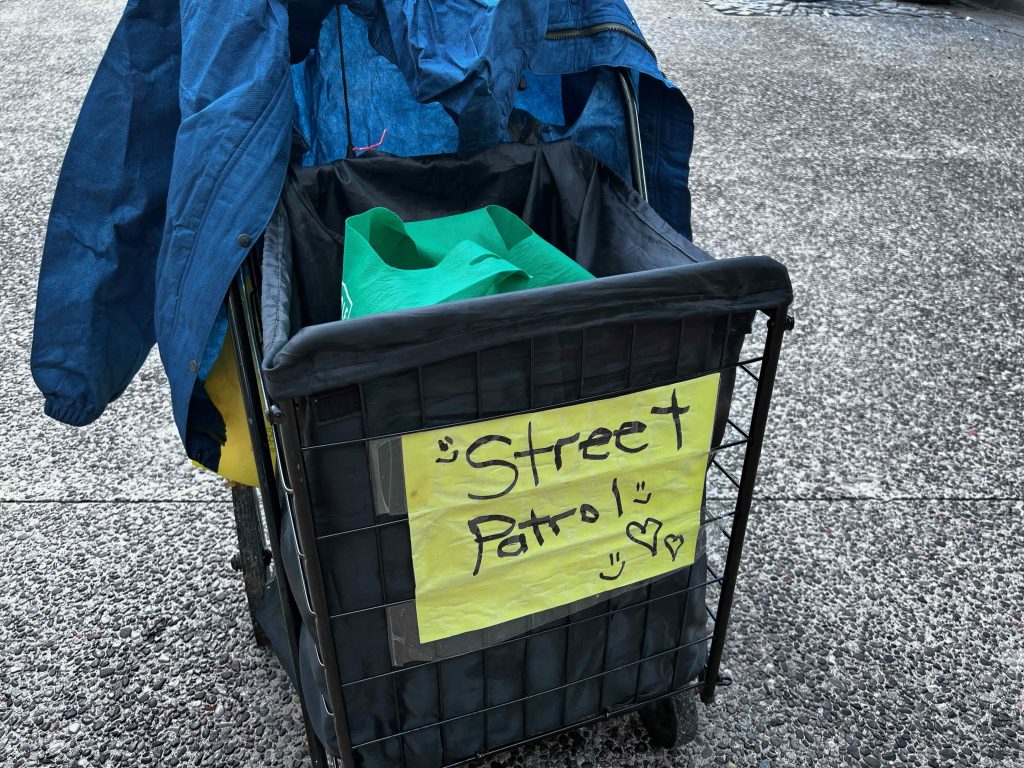
A short distance away, Good Shepherd Ministries, inspired by the hospitality of St. John of God and rooted in Catholic teachings, offers health, housing and human services to homeless people across the Greater Toronto Area.
Between 2021 and 2024, homelessness in Toronto more than doubled, rising from nearly 7,350 people in 2021 to more than 15,400 in 2024, according to Toronto’s Street Needs Assessment. Outdoor homelessness also jumped sharply in that same period, from more than 740 to more than 1,600.
Frontline organizations often find themselves running beyond capacity.
Aklilu Wendaferew, executive director of Good Shepherd Ministries, described how the surge in homelessness has increased demand for services, affecting all its programs, including providing meals, beds, medical care, addiction recovery, housing support and unique services for homeless veterans.
The organization works with government and nonprofit partners but faces the constant challenge of keeping up with the growing number of people on the streets, he said.
“Homelessness is a very complex issue,” Wendaferew said. “Addressing it requires a collaborative effort by agencies like Good Shepherd but also different levels of government … if we’re going to make a meaningful impact.”
Good Shepherd Ministries provided 700 meals a day during the peak of the COVID-19 pandemic. Today, it serves roughly 1,000 meals daily, making the organization the largest provider of daily meals to Toronto’s needy, Wendaferew said.
Its 107-bed shelter operates at capacity most of the year and turns away people nightly.
About 40 per cent of its $8 million annual budget comes from community and corporate donations.
St. Felix Centre faces similar challenges and is in expansion mode. With funding from the City of Toronto, it is opening a new 50-bed shelter.
Enrique Cochegrus, St. Felix’s director of business development and communications, said added resources have allowed the centre to hire more staff, open additional beds and extend its outreach. But that growth has not come from opportunity but from necessity.
“Sadly, we have seen an exponential growth over the last six years or so,” said Cochegrus. “When you talk about growing a business, it’s great you’re growing. But in our area, that’s not something to be excited about.”
St. Felix is supported by organizations such as Working for Change, medical institutions and the Archdiocese of Toronto.
Cochegrus said it is clear the challenge is not just providing food or shelter; it is fighting the social isolation and dehumanization that comes with living on the streets.
“People think that you need to do this … crazy, great, amazing thing to change things, and that’s not true,” Cochegrus said. “I’ve seen and heard from so many people saying, ‘this individual just told me the right thing at the right time, or just shook my hand or gave me a hug, and that was enough.’”
Homelessness stigma is widespread and socially tolerated, said Cochegrus, creating a troubling dynamic in which people without homes are marginalized.
“It’s probably the only group that people can be hateful towards and [it] is socially accepted,” he said.
He recalls a man leaving after a haircut, saying, “Now I can go into a mall without being kicked out.”
The homeless are not the challenge, Cochegrus said. “They are human beings that at this particular moment in time are experiencing a challenge.”
“Our guests are fantastic people. Some of the most incredible, interesting conversations I’ve ever had have been with them,” Cochegrus said. “I really believe that anyone coming to St. Felix Centre is transformed by God, and I’m not [only] talking about the people who use the services.”
Abbruzzese sees things the same way, saying the Street Patrol changes the volunteers as much as it helps those it serves.
“It’s about walking with them, supporting them, and letting God transform all of us,” he said.
Charlotte Taillon is the director of communications and government relations for the Alberta Catholic School Trustees’ Association. She produced this report onsite as part of the God in the City Catholic journalism seminar in Toronto.


